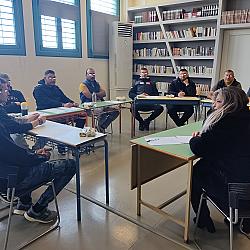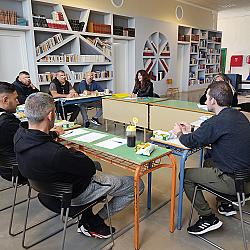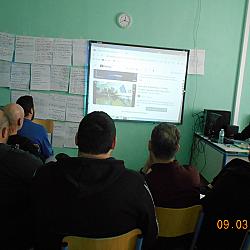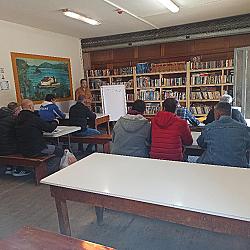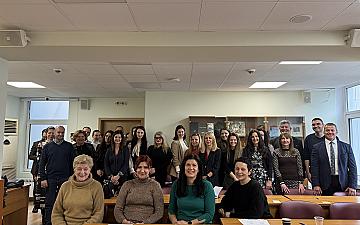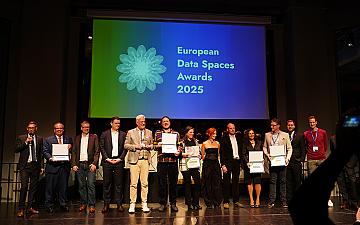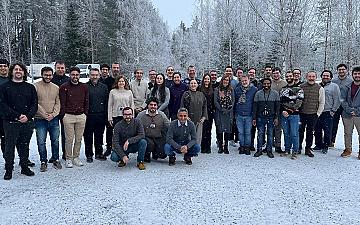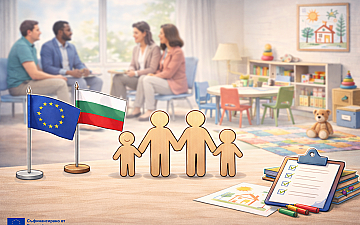The most interesting part of the project was launched back in November 2022. All but one of the prisons that have expressed interest in joining the project have successfully completed the first round of schools of parents. The success of the initiative was further validated by the overwhelming interest expressed in initiating a second round of schools in some prisons. In fact, in prisons like Grevena, Nigrita and Avlona, the second round of schools commenced during Spring.
As part of the monitoring and evaluation process, the project management team of the coordinator of the project - KEMEA, visited some of the schools (09/05 Korydallos, 20/05 Thiva, 03/07 Tripoli, 04/07 Malandrino and Amfissa, 06/07 Domokos). During these visits, meaningful discussions were held with the sociologists and psychologists who oversee each school, as well as with the participants themselves. These discussions provided valuable insights into the effectiveness of the program and allowed for a deeper understanding of the impact it has on their lives.
The overall impression and feedback received was incredibly encouraging. The sociologists and psychologists shared their expertise and perspectives on the progress made by the participants and offered suggestions for further improvement. At the same time, engaging with the participants directly enabled the project management team to hear firsthand their experiences and the positive changes they have witnessed in their communication with their children and families. Participants expressed their gratitude for the project while also sharing the challenges they face within the prison system, including the inadequate facilities and the limited opportunities for interaction with their families while during their time of incarceration. In the upcoming months the team plans to continue its visits in prisons to assess the project’s impact.
It is worth mentioning a remarkable experience we had in our visit to the detention facility of Thiva, which operates as a rehabilitation center. The participants and their families encounter a distinctive social stigma, coming not only from their incarceration, which is common among all those who are imprisoned, but also due to their struggles with drug addiction. However, their passion to overcome these circumstances and remain active in restoring and rebuilding their family relationships and particularly with their children, was truly more than inspiring.
The participants' openness and willingness to share their personal experiences provided valuable insights for further improvements and emphasized the vital role that interventions play in instilling hope and empowering prisoners to embark on transformative journeys. By providing opportunities for individuals to turn their lives around, interventions can create a profound impact on the path towards rehabilitation and reintegration.

